From Tents to Dwellings
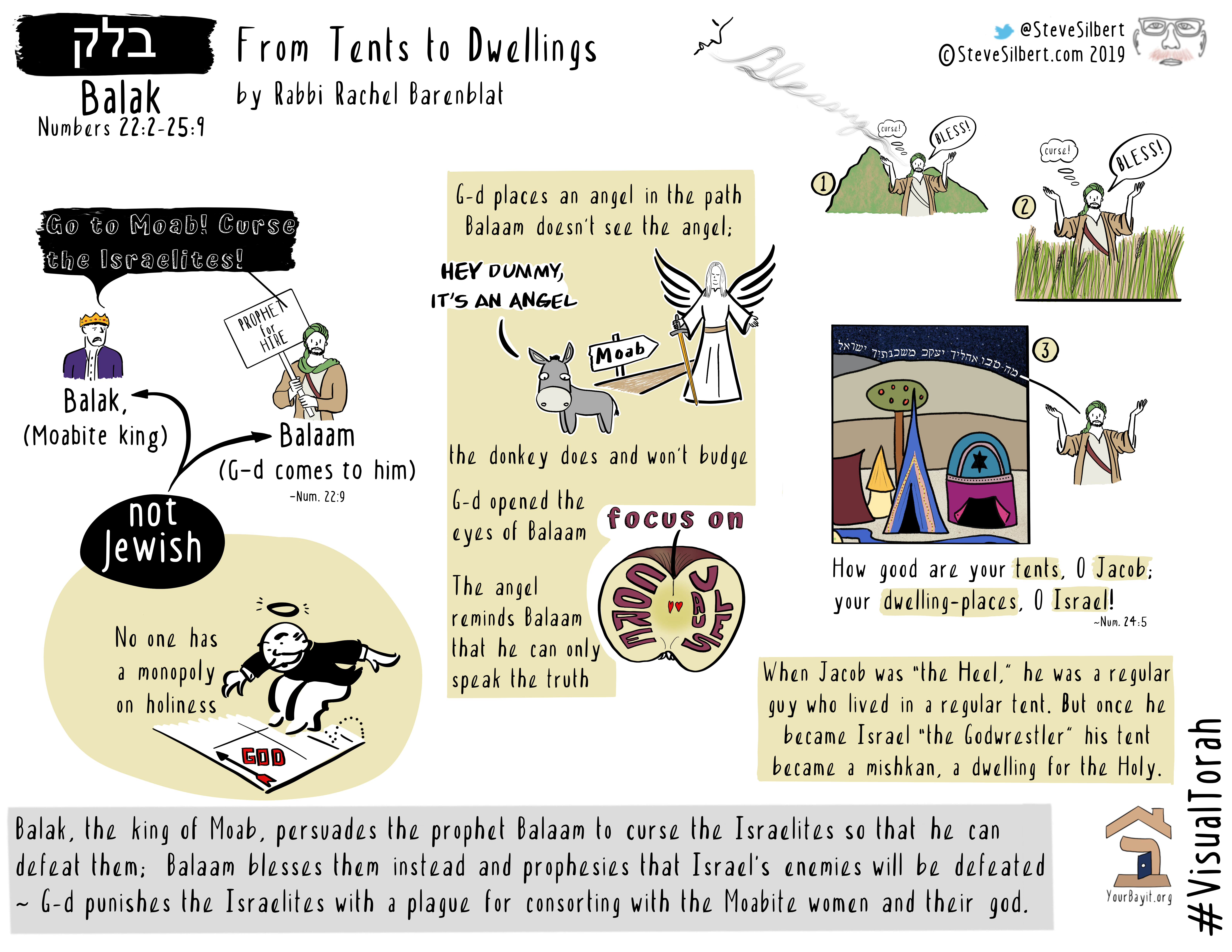
Part of a yearlong Torah series on spiritual building and builders in Jewish life.
Parashat Balak introduces us to two non-Jewish figures: the titular Balak, a Moabite king, and the prophet Balaam. Balak, seeing the children of Israel encamped in his territory, becomes fearful that these strangers will overrun his country. (Echoes of Pharaoh, who said the same thing.) So he asks Balaam to curse them. Intriguingly, Balaam says he can do only what God tells him to. And he clearly has a working relationship with the Holy One; “God comes to him” (Numbers 22:9) and speaks to him. That’s the first building lesson I find here: Torah transcends its own triumphalism to remind us that we’re not the only ones in relationship with the Holy.
Balak pesters Balaam until finally he heads to Moab. When an angel bars his way, he doesn’t see the angel — but his donkey does, and the donkey balks. In a comedic moment, when Balaam beats the donkey, God opens the donkey’s mouth (Numbers 22:28) to talk back! And then God opens Balaam’s eyes to the angel who’s been placed in his path to be an adversary for him, and the angel reminds him that he can only prophesy as God instructs. Second building lesson: when others stand in opposition, we can use that to help us refocus on our own core principles, in this case Balaam’s commitment to speak only the words God gives him to say.
Balaam ascends to a mountaintop and offers not curses, but blessings. Balak is predictably angry, but tells him to try cursing again. Three times, in three locations, he opens his mouth — and every time, he speaks blessings, not curses. The third time, he sees the children of Israel encamped tribe by tribe (Numbers 24:2). Rashi, writing on this verse, cites Talmud’s interpretation that what Balaam saw was the placement of their tents, set up such that people couldn’t look into one another’s dwellings. (Bava Batra 60a). In other words: each household was guaranteed privacy. The community was set up in a way that ensured healthy boundaries.
This time, Balaam declaims: “ מַה־טֹּ֥בוּ אֹהָלֶ֖יךָ יַעֲקֹ֑ב מִשְׁכְּנֹתֶ֖יךָ יִשְׂרָאֵֽל / How good are your tents, O Jacob; your dwelling-places, O Israel! (Numbers 24:5) (He says a few other things too, but that’s the familiar verse arising out of this week’s portion.)
For those of us who know this verse from liturgy, this may feel like the dramatic moment toward which this whole story has been building. As Rashi teaches on this verse, our communities become “good” when we ensure that each person has our own space, our own place, with safety both physical and emotional / spiritual. As we’ve written here before, any Jewish future worth building must prioritize healthy boundaries and ethical behavior. Our “tents” need to be set up such that each of us is safe from prying eyes — and from wandering hands, unwanted touch, and malicious speech. Those transgressions are inimical to healthy community.
Reading Rashi’s teaching more broadly, we can extrapolate that our communities also become “good’ when each person has their own vantage from which to engage with tradition. We build healthy community when we can hold differences of interpretation, custom, and practice. And that links back to the teaching I find in the very fact of Balaam’s prophetic relationship with God: it’s a mistake to presume that anyone has a monopoly on holiness. The Jewish future needs a variety of “tents,” each oriented in its own way and also part of a greater whole. (That’s why we intentionally founded Bayit with a denominationally and spiritually diverse group of builders.)
Look back at “How goodly are your tents, O Jacob; your dwelling-places, O Israel,” (Numbers 24:5) and try this on: when Jacob was “the Heel,” he was a regular guy who lived in a regular tent. But once he became Israel — “the Godwrestler” — his tent became a mishkan, a dwelling for the Holy. As for him, so too for us. When we grapple with God, when we build with ethical intention as our guide, when we open ourselves to the Voice that continues to sound (I Kings 19) — then our tents become dwelling-places for the divine. Then we access the flow that’s available wherever we go. Then we’ll build a Jewish future worthy of who we want to be.
By Rabbi Rachel Barenblat. Sketchnote by Steve Silbert.

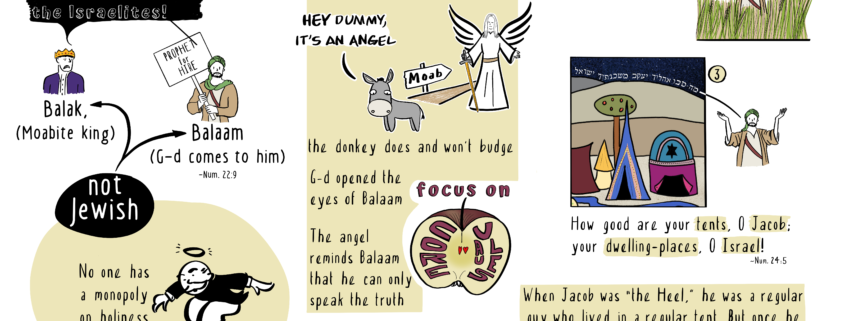

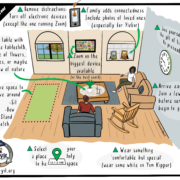
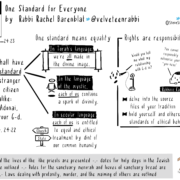

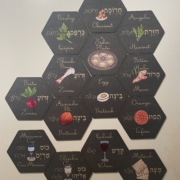
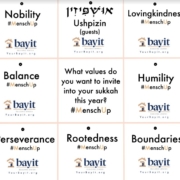


Trackbacks & Pingbacks
[…] Here’s Torah commentary at Builders Blog (a project of Bayit: Building Jewish), this week written by Rabbi Rachel and sketchnoted as always by Steve Silbert: From Tents to Dwellings. […]
Comments are closed.